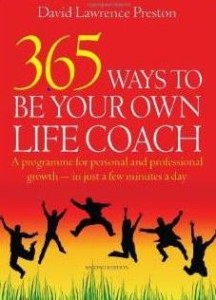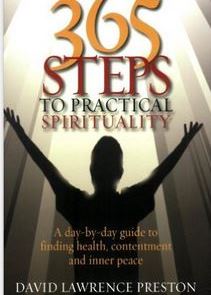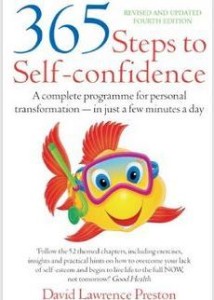I spotted a competition in a newspaper recently. ‘Change your life forever!’ it announced in huge letters. ‘Win a new home, a car, a dream holiday, £20,000 a year for life to help you maintain your new, luxurious lifestyle, and enjoy VIP treatment from celebrity experts.’ Well, obviously if you won this handsome prize your life would be different, but would you be any happier?
History suggests you would not. Possibly you would feel better for a few months, but more likely the effects would be temporary. It would still be you with these things. If you were unhappy before, happiness would still elude you.
We seek happiness by pandering to the senses, but if we knew what really made us happy, we would crave very little. Why? Because happiness cannot be earned, owned, travelled to, worn or consumed. It is the experience of living every moment with love, style, and gratitude. And it comes not from external things, but from within. Research shows that happiness is largely influenced by non-physical factors such as our values, attitudes and beliefs. For example:
- Across all cultures, people who have a happy marriage, spend time with their families, enjoy caring friendships, a varied and rewarding social life and worthwhile goals which are enjoyable to pursue tend to be happier than average.
- People only grow happier as they get richer if they start below the poverty line. Lottery winners, for instance, are no happier than the rest of us, and despite the massive increase in wealth in developed countries in the last fifty years, levels of happiness have not increased.
- Age, gender, wealth, education, nationality and race are unrelated to happiness.
Spiritually inclined people are generally happier because they have a sense of meaning that brings hope, purpose and optimism, all of which are closely linked to happiness. Once, this would have surprised me since my religious programming taught me that life is suffering. But I now know that suffering is not inherent to life. We bring suffering upon ourselves through ignorance. We let our ego control our behavior and we flout the spiritual laws – Cause and Effect and Attraction. When we let go of unhealthy desires, accept ourselves and other people, and stop resisting ‘what is’, we allow life to flow.
Take responsibility for your happiness
We gain a wonderful sense of freedom when we understand that it is not events and circumstances that determine our happiness. We have no control over what others think, say or do, and if we cannot rely on these for our happiness. As the philosopher Epictetus said, ‘There is only one way to happiness and that is to cease worrying about things which are beyond the power of your will.’
Happiness comes from inside. Wherever you go, you take yourself with you. If you are unhappy with yourself, you will be unhappy with what you do, where you are, who you’re with, what you achieve or what you have – with life, in fact.
Happiness is an attitude
Abraham Lincoln famously remarked that, ‘Most folks are about as happy as they make up their minds to be.’
Broadcaster Hugh Downs, concurred. ‘A happy person is not a person with a certain set of circumstances, but rather a person with a certain set of attitudes.’
Attitudes are spectacles through which we see the world. A person with happy attitudes sees things which justify their happiness; an unhappy person sees mainly things that justify their unhappiness. Bad things happen to everybody, but that doesn’t mean we can’t be happy. It’s dwelling on the negative that wrecks lives.
Western culture spreads unhelpful beliefs about happiness. We are taught that it has to be earned, paid for and deserved, otherwise we are expecting something for nothing. Not so! Happiness is our birthright and is available to all. Claim it! This is not a selfish attitude. If you don’t have happiness, how can you share it? And how can you make anyone else happy by being miserable?
Happiness is a journey, not a destination
There’s an Eastern proverb, ‘There is no way to happiness; happiness is the way.’ It reminds us to treasure every moment.
If you believe that your happiness depends on getting somewhere, you’re mistaken. When you arrive at your destination, you find that the elation soon wears off and you’re no happier than before. Why? Because achieving your goals takes place in the future, but happiness can only exist in the present.
Take pleasure from achieving your goals, but don’t allow your happiness to depend on achieving them. Instead, enjoy the process. If you succeed – great! If you don’t, you’ve had fun trying, grown as a person and probably done some good along the way.
Some things I’ve learned about happiness
Happiness is not an absence of problems; it is faith in our ability to deal with them. Problems are part of life. Every problem has something to teach us. If you’re waiting for all your problems to be solved or hoping for a life without problems, you’ll wait in vain. Part of happiness is enjoying challenges, overcoming difficulties and learning from the process.
Don’t confuse happiness with fun. Sure, happy people have lots of fun, but happiness and fun are not the same. Happiness is a lasting and stable state of being, while fun is transitory. Fun pastimes bring pleasure for a while, but the effect wears off once the activity ends. To be happy, we don’t need everything to be fun. It’s necessary to experience tedium from time to time. I’ve laboured in factories, lifted heavy bags of stinking manure from a leaky barn onto a lorry, done mind-numbing office work and sold household products door to door. All these jobs were unpleasant but I knew they were just stepping stones.
Many people are drawn into fun activities like getting drunk, eating, drugs and sex, only to find that they merely distract them from their problems and in the long term make matters worse. Instead, focus the mind and lay down the right causes. This is the way to find enduring happiness.
Count your blessings. Look for the blessings in everything; there always are some. You may not be able to see the bigger picture, but behind the appearances all is in order. The world is a beautiful and bounteous place. Be grateful for it all.
Be cheerful. Happiness is infectious; cheerfulness attracts happy people. Be cheerful even if you’re not feeling 100% inside. Why let your physical or emotional state spoil someone else’s day?
Smile a lot. Look for the funny side in every situation. Don’t take yourself so seriously.
Laugh loud and often. Laughter is good for you. It can help deal with many things including depression and stress. It stimulates the organs as you take in more oxygen, and leaves you with a pleasantly relaxed feeling.
Buy yourself a Laughing Buddha. The Laughing Buddha is a wandering monk who symbolises happiness and smiles knowingly at the absurdity of human behaviour. According to legend, if you rub his pot belly, you will have prosperity and good luck. The Laughing Buddha reminds us that life not to be taken too seriously. Play well, but remember that much of our behaviour is a game in the wider scheme of things.
Music and song. Some music has an uplifting quality, and some (e.g. heavy metal, gangster rap, electro-disco beats etc.) has been shown to weaken the body’s immune system and bring on depression. So choose what you listen to carefully. Singing and chanting are also good for you.
The Inner Smile – not a movement of the lips, but an attitude. Imagine your whole body smiling and project the smile into the world around you. The Inner Smile dissolves inner blockages, invigorates, and enhances your ability to love and be happy. Start by relaxing your forehead and imagining your brow chakra open and smiling. Let the smile spread into your eyes, down the entire length of your body, and into your internal organs. Then let it radiate into your aura.
The ancient Masters of India and China taught special meditative techniques to enhance the Inner Smile. It is said that the enlightened Masters had incredible smiles which came from within and affected everyone in their presence.
Stop making comparisons. Commercial interests have a great deal to gain by making us feel dissatisfied. They encourage us to compare ourselves with others knowing that only an unsatisfied need motivates. Advertisers skilfully encourage us to want what others have
Happiness, though, has nothing to do with one’s appearance, wealth, achievements, possessions and so on, so why compare? What’s the point of weighing one set of delusions against another? Dropping comparisons from your thinking and speaking is guaranteed to increase your happiness and wellbeing.
Let happiness come to you. Nathaniel Hawthorne wrote, ‘Happiness is a butterfly which, when pursued, is always beyond our grasp, but which if you sit down quietly, may alight on you.’
Happiness is an attitude, a state of consciousness. Have you ever tried chasing an attitude? When we discover what makes us unhappy, stop doing those things and endeavour to act in harmony with Universal Law, happiness comes and gently sits on our shoulder.
Before he came to power, British Prime Minister David Cameron suggested that in the not too distant future, governments will be judged on how they contribute to the happiness of their electorate!* Now there’s a thought!
©David Lawrence Preston, 17.4.2016

Follow me on Facebook and Twitter @David_L_Preston

How To Books, 2004
*These fine sentiments evaporated, though, once he came to power!





